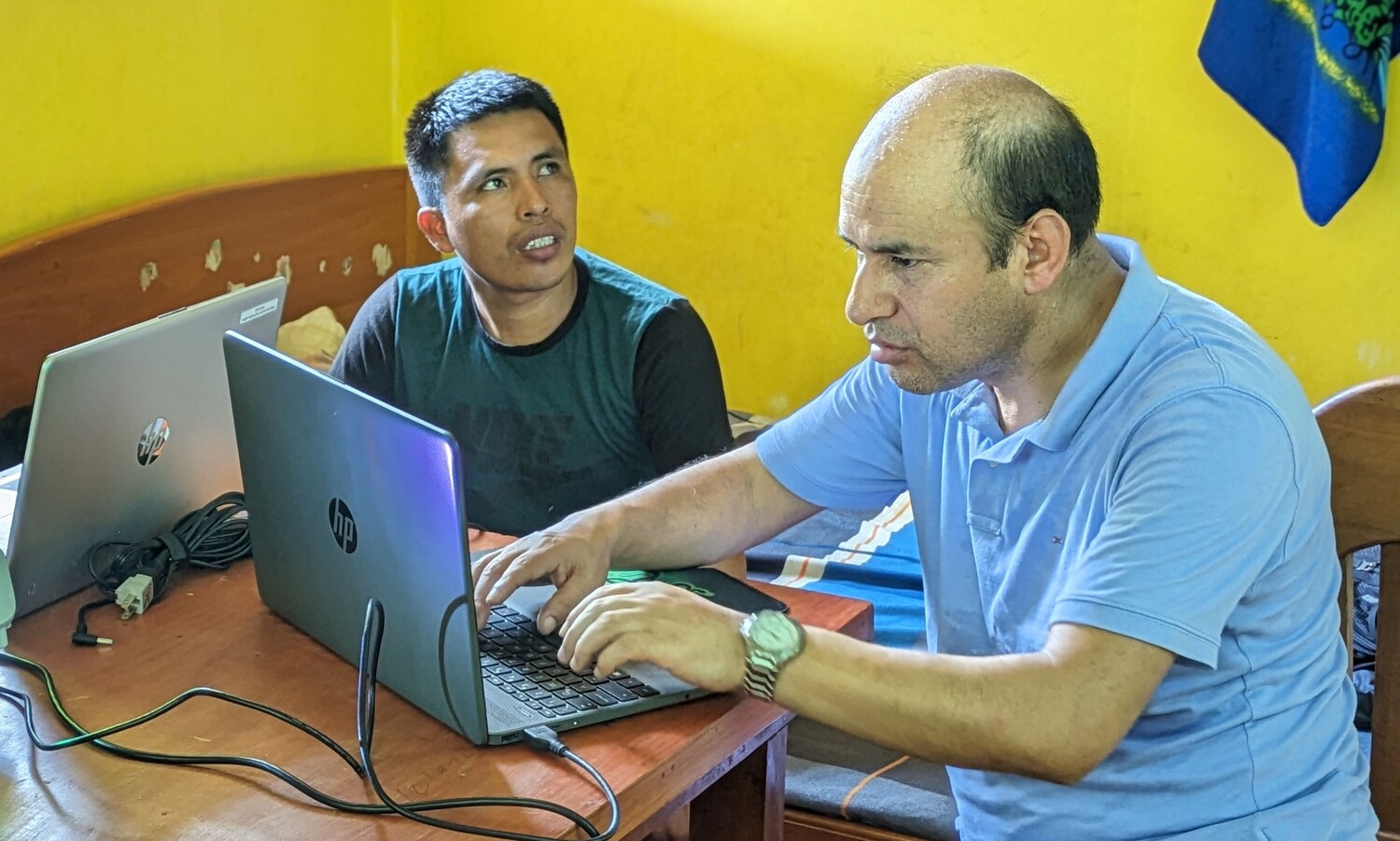Moving languidly in the afternoon heat, Melissa Noa Cueranari, 24, rocks her baby son, Hendricks, in a hammock on the porch of the Pastaza translation office in San Lorenzo. His eyelids flutter and close—clearly, this is a familiar routine for him. But for Melissa and the rest of the Northern and Southern Pastaza translation families, little about this environment is familiar.
“Where I used to live, we didn’t buy anything,” says Melissa. “We had fish in the river and plantains. That was our food. But here, we buy everything, and we need money to pay for these things.”
In the village, they slept in huts with raised floors that allowed air flow in the intense heat and humidity. Their extended family lived nearby, and the pace of life was slow.
But the villages lack reliable cell reception and internet connectivity—they weren’t practical places to do translation work. So when the translators agreed to join the teams, they didn’t just accept a new job or even a new vocation: they and their families signed on for a completely different life. Here in San Lorenzo, an unprepossessing town occupying a razed section of rainforest next to the muddy Marañón River, they’ve learned to live in confined spaces, to buy their food in grocery stores and to search for schools for their children.
The office where both teams currently work doubles as home for two members of the Southern Pastaza team: Felix Manrique Cueranari Dahua and Janas Cahuaza Dahua, along with Janas’ wife Melissa and little Hendricks. This arrangement means that Felix’s bedroom serves as an office space during the day, and that Melissa must care for her baby in the midst of translation work. Luis is searching for additional office space, but the real estate market in San Lorenzo has made this challenging.
Both teams are clearly excited to be translating the Bible into their own languages. Their joy shines through as they and their families squeeze into the office on a Thursday night for their weekly worship service. The packed room is a potent visual reminder of the truth that following God—in Bible translation, or really, in anything—often requires sacrifice and discomfort amidst the joy.
